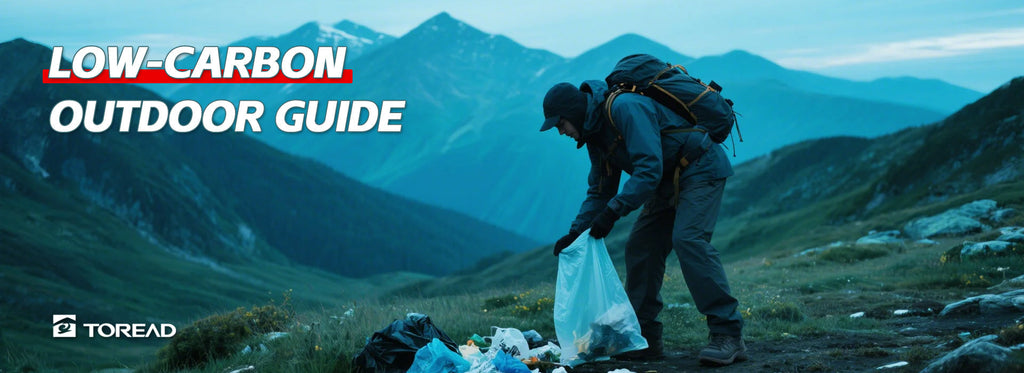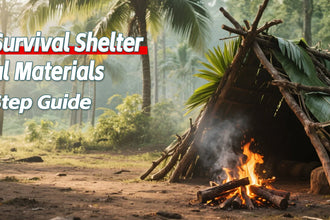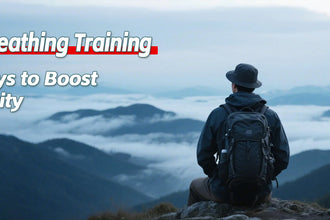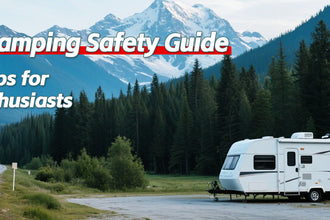

Embracing low-carbon principles in outdoor activities is no longer optional—it’s a responsibility. As climate change reshapes ecosystems, adventurers must prioritize sustainability without compromising safety or performance. This guide outlines actionable strategies for reducing your environmental footprint while exploring nature, paired with TOREAD Outdoor’s innovative gear designed to align with eco-conscious values.
1. Core Principles of Low-Carbon Outdoors
Minimize Waste
-
Pack Smart: Carry reusable containers, utensils, and water bottles. Avoid single-use plastics, which contribute to 8 million tons of ocean pollution annually.
-
Leave No Trace: Follow the seven LNT principles, including proper waste disposal and avoiding vegetation damage.
Energy Efficiency
-
Solar Power: Use portable solar chargers for devices like GPS units or headlamps. TOREAD’s Solar Hydration Pack integrates UV water purification with solar charging, reducing reliance on disposable batteries.
-
Low-Impact Cooking: Opt for fuel-efficient stoves over open fires, which deplete natural resources and release CO2.
Sustainable Mobility
-
Green Transportation: Choose biking, walking, or public transit for trail access. Carpooling reduces emissions by up to 30% per person.
-
Lightweight Gear: Ultralight equipment lowers fuel consumption during transport. TOREAD’s Cloud 2P Ultralight Tent (1.8kg) exemplifies this philosophy.
2. Gear Selection: Eco-Friendly and Durable
A. Clothing
-
Recycled Materials: Opt for apparel made from recycled polyester or organic cotton. TOREAD’s HIMEX Series Jackets use durable, eco-treated fabrics to minimize microplastic shedding.
-
Longevity Over Fast Fashion: Invest in multi-season gear like the StormGuard 3L Jacket, designed for years of use.
B. Shelter and Sleep Systems
-
Low-Impact Tents: Choose tents with non-toxic waterproof coatings. TOREAD’s ThermoGuard 4-Season Tent employs PFC-free materials to protect soil and water systems.
-
Sustainable Sleep Gear: Sleeping bags with responsibly sourced down or synthetic fills, such as TOREAD’s NightVision Sleeping Bag, balance warmth and ethics.
C. Accessories
-
Biodegradable Products: Use sunscreen and insect repellent free of oxybenzone and DEET, which harm aquatic life.
-
Rechargeable Tools: Replace disposable items with solar-powered lights or hand-crank radios.
3. On the Trail: Practical Low-Carbon Actions
A. Campsite Management
-
Water Conservation: Collect and filter water using UV pens instead of bottled water.
-
Waste Reduction: Pack out all trash, including organic waste like fruit peels, which disrupt local ecosystems.
B. Wildlife Protection
-
Avoid Fragile Habitats: Stick to established trails to prevent soil erosion and plant damage.
-
Non-Invasive Practices: Use bear-resistant containers and store food securely to avoid altering animal behavior.
C. Community Engagement
-
Volunteer for Cleanups: Join initiatives like TOREAD’s “Eco-Trail” programs, which organize trail restoration and litter removal.
-
Educate Others: Share sustainable practices within your outdoor community.
4. TOREAD Outdoor’s Low-Carbon Solutions
-
Solar Hydration Pack: Combines a 3L water bladder with solar panels for off-grid energy needs.
-
Eco-Trek Backpack: Made from 70% recycled materials, featuring modular compartments to reduce overpacking.
-
BioDegradable Utensil Set: Lightweight, compostable cutlery for zero-waste meals.
-
GreenTrail Hiking Shoes: Constructed with algae-based foam soles, reducing carbon footprint by 30%.
-
Rechargeable Headlamp: Solar-powered with a 120-hour battery life, eliminating disposable batteries.
Conclusion
Adopting a low-carbon outdoor lifestyle is a commitment to preserving the planet for future generations. By integrating sustainable habits, selecting eco-conscious gear like TOREAD’s innovations, and advocating for environmental stewardship, adventurers can explore responsibly. As TOREAD’s motto states: “Brave the unknown, but leave no trace behind.”













